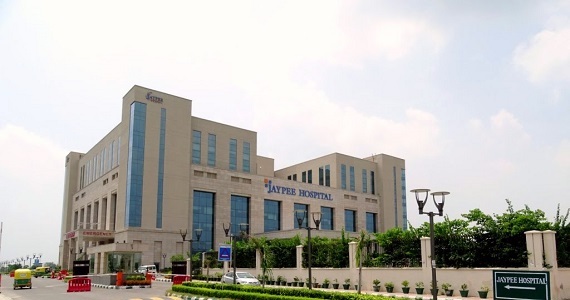Interstitial Cystitis Treatment in India
treatment
starting from
Introduction
Interstitial Cystitis (IC), also known as Painful Bladder Syndrome, is a chronic and challenging condition that affects the urinary bladder. Characterized by pelvic pain, frequent urination, and a persistent urge to urinate, IC can significantly impact a person's physical, emotional, and social well-being. While the exact cause of IC remains elusive, ongoing research has shed light on potential contributing factors. In this comprehensive blog, we will delve deeper into the intricacies of Interstitial Cystitis, exploring its symptoms, underlying causes, diagnostic methods, and management options.
What is Interstitial Cystitis?
Interstitial Cystitis is a disorder of the bladder and pelvic region, causing chronic pain and discomfort. The hallmark feature of IC is inflammation of the bladder wall, leading to a compromised protective lining. This, in turn, results in heightened sensitivity to substances in the urine that typically would not cause discomfort. The symptoms of IC can vary widely from person to person, ranging from mild irritation to debilitating pain.
Symptoms of Interstitial Cystitis
The symptoms of Interstitial Cystitis can be complex and often mistaken for other urinary or gynecological conditions. It is essential to recognize the signs to seek timely medical intervention. Common symptoms include:
1. Pelvic Pain: Persistent, often intense, pain in the pelvic region, lower abdomen, and lower back. The pain can fluctuate in intensity and may be exacerbated by certain triggers, such as menstruation or stress.
2. Urgency and Frequency: An overwhelming and frequent need to urinate, even with small amounts of urine in the bladder. This can lead to an urgent feeling of needing to rush to the restroom.
3. Painful Urination: Dysuria, or painful urination, is a common symptom of IC. The discomfort can range from mild burning to sharp, stabbing pains.
4. Nocturia: Frequent nighttime awakenings to urinate, disrupting sleep patterns and leading to fatigue.
5. Pain during Intercourse: Dyspareunia, or pain during sexual intercourse, is experienced by many individuals with IC.
Causes and Risk Factors
The precise cause of Interstitial Cystitis is still not fully understood, but several factors may contribute to its development:
1. Bladder Lining Defects: A compromised protective lining of the bladder may leave the underlying tissues vulnerable to irritation and inflammation.
2. Autoimmune Response: Some researchers believe that IC may result from an abnormal immune response that targets the bladder.
3. Neurogenic Inflammation: Abnormal nerve signals can cause inflammation and pain in the bladder.
4. Genetic Predisposition: There may be a genetic link to developing IC, as it appears to run in some families.
5. Pelvic Floor Dysfunction: Problems with the pelvic floor muscles may exacerbate IC symptoms.
6. Allergies or Sensitivities: Some individuals with IC may have heightened sensitivities or allergies to certain foods or environmental factors.
Diagnosing Interstitial Cystitis
Diagnosing IC can be challenging, as there is no definitive test for the condition. Instead, doctors rely on a combination of patient history, symptoms, and exclusion of other conditions. The diagnostic process may include:
1. Thorough Medical History: Your doctor will inquire about your symptoms, medical history, and any previous urinary tract issues.
2. Physical Examination: A pelvic examination may be performed to check for signs of IC or other pelvic disorders.
3. Urinalysis: A urine sample will be analyzed to rule out infections or other abnormalities.
4. Cystoscopy: This procedure involves inserting a thin, flexible tube with a camera into the bladder to examine its lining for signs of inflammation, ulcers, or other abnormalities.
5. Hydrodistention: During cystoscopy, the doctor may also perform bladder distension, where the bladder is filled with water to assess its capacity and observe any characteristic "Hunner's ulcers."
6. Biopsy: In some cases, a small sample of the bladder lining may be taken for further examination.
Treatment and Management
Although Interstitial Cystitis cannot be cured completely, several treatment options aim to manage symptoms and improve the patient's quality of life:
1. Lifestyle Modifications: Adopting a healthy lifestyle can significantly impact IC symptoms. This includes avoiding trigger foods, such as caffeine, alcohol, acidic and spicy foods, and artificial sweeteners. Staying hydrated, managing stress, and maintaining a healthy weight are also crucial.
2. Bladder Training: Controlled, scheduled bathroom visits can help improve bladder capacity and reduce urgency and frequency.
3. Medications: Depending on the severity of symptoms, various medications may be prescribed, including pain relievers, antihistamines, tricyclic antidepressants, and bladder-specific medications like pentosan polysulfate sodium.
4. Physical Therapy: Pelvic floor physical therapy can be beneficial for strengthening pelvic muscles and reducing pelvic pain.
5. Bladder Instillations: Medications, such as dimethyl sulfoxide (DMSO) or heparin, may be directly instilled into the bladder to reduce inflammation and alleviate pain.
6. Nerve Stimulation: Sacral nerve stimulation, a procedure involving the implantation of a device that regulates nerve signals, may be considered for individuals with severe IC symptoms.
Conclusion
Interstitial Cystitis is a multifaceted condition that requires a comprehensive approach to diagnosis and management. While it presents challenges, understanding the symptoms, causes, and risk factors can help healthcare professionals develop effective treatment plans for individuals affected by IC. If you suspect you have IC or are experiencing any urinary symptoms, seeking medical advice promptly is essential to receive a proper evaluation and personalized care. Although there is no one-size-fits-all approach to managing IC, with the right strategies and support, individuals can find relief and maintain an improved quality of life.
How It Works
Need help in organizing medical travel to India?



